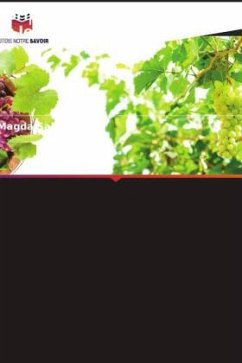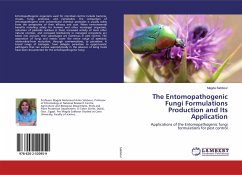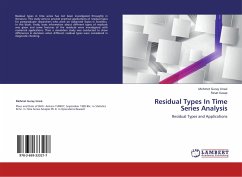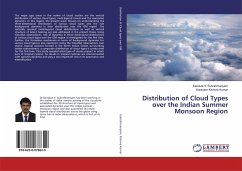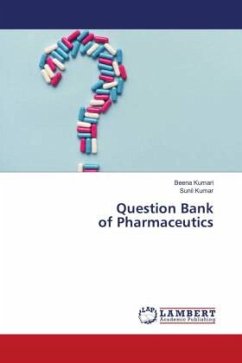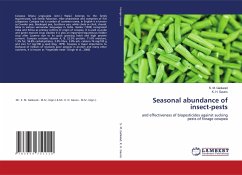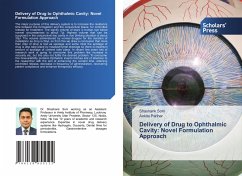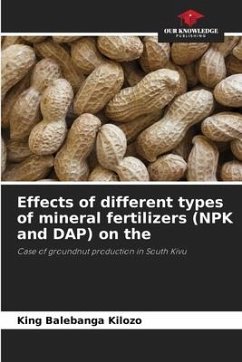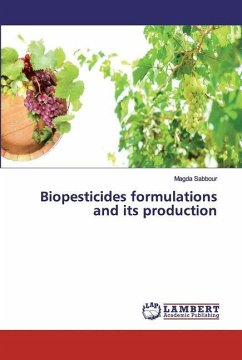
Biopesticides formulations and its production
Versandkostenfrei!
Versandfertig in 6-10 Tagen
47,99 €
inkl. MwSt.

PAYBACK Punkte
24 °P sammeln!
Pesticides provide significant benefits to people by controlling pests that invade agricultural crops. However, there are many risks associated with their use because of their potential to cause adverse effects. Consequently, there is an increasing public pressure to replace them, if possible, with safer alternatives for crop protection. Plants at all stages of their growth, as well as harvest products in storage, are susceptible to attacks by many pathogens that cause severe damage to plant products. Biopesticides based on microorganisms may represent an alternative path in crop protection be...
Pesticides provide significant benefits to people by controlling pests that invade agricultural crops. However, there are many risks associated with their use because of their potential to cause adverse effects. Consequently, there is an increasing public pressure to replace them, if possible, with safer alternatives for crop protection. Plants at all stages of their growth, as well as harvest products in storage, are susceptible to attacks by many pathogens that cause severe damage to plant products. Biopesticides based on microorganisms may represent an alternative path in crop protection because of their safety to humans and non-target organisms, both in individual applications and within integrated pest management (IPM). IPM includes a minimum use of chemical pesticides to maintain crop health and biopesticides may have an important place in that strategy. ). There are different kinds of biopesticide active ingredients and each has specific properties and can be formulated ina variety of products. Products containing living and biologically active ingredients have been commercially available for agricultural uses for many years.



